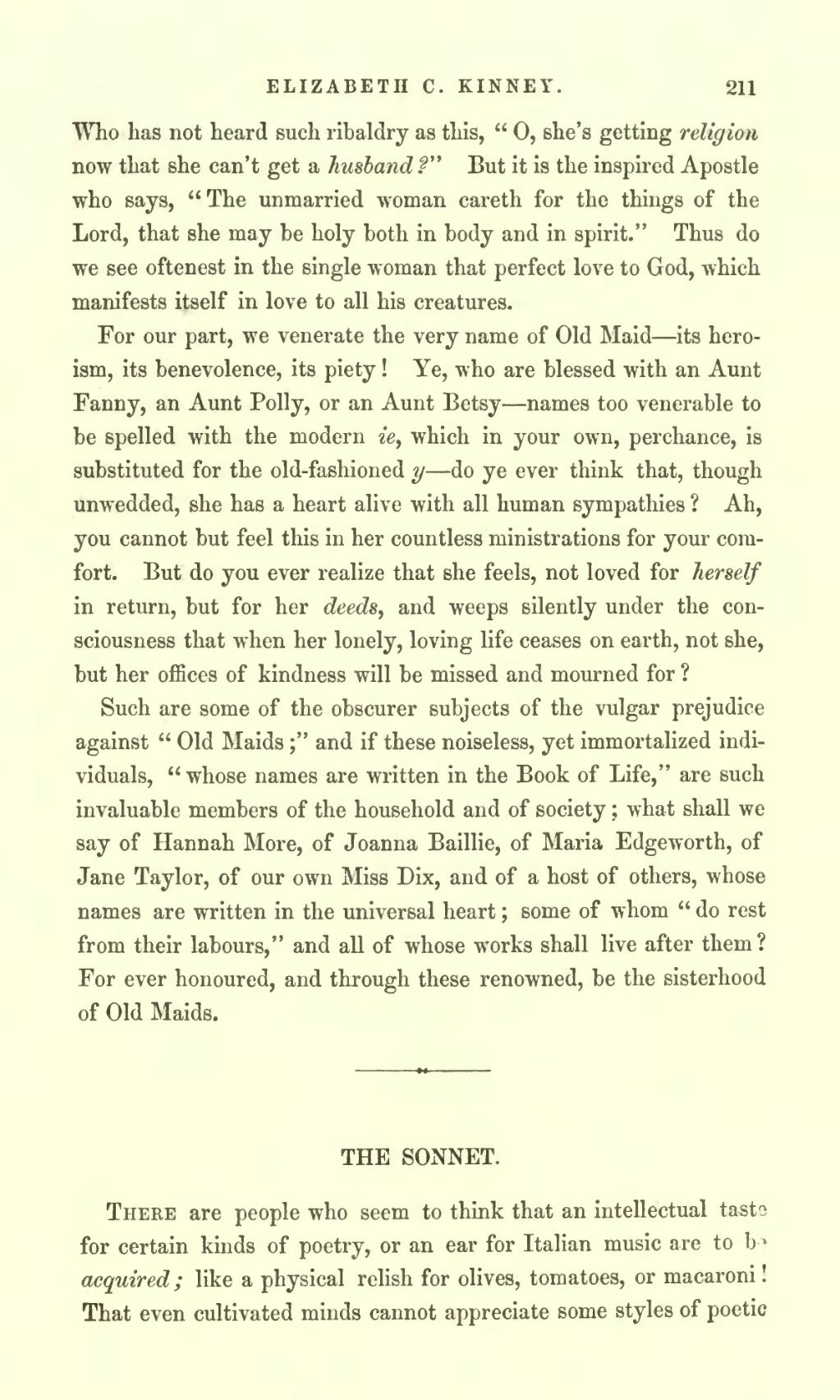Who has not heard such ribaldry as this, “O, she’s getting religion now that she can’t get a husband?” But it is the inspired Apostle who says, “The unmarried woman careth for the things of the Lord, that she may be holy both in body and in spirit.” Thus do we see oftenest in the single woman that perfect love to God, which manifests itself in love to all his creatures.
For our part, we venerate the very name of Old Maid—its heroism, its benevolence, its piety! Ye, who are blessed with an Aunt Fanny, an Aunt Polly, or an Aunt Betsy—names too venerable to be spelled with the modern ie, which in your own, perchance, is substituted for the old-fashioned y—do ye ever think that, though unwedded, she has a heart alive with all human sympathies? Ah, you cannot but feel this in her countless ministrations for your comfort. But do you ever realize that she feels, not loved for herself in return, but for her deeds, and weeps silently under the consciousness that when her lonely, loving life ceases on earth, not she, but her offices of kindness will be missed and mourned for?
Such are some of the obscurer subjects of the vulgar prejudice against “Old Maids;” and if these noiseless, yet immortalized individuals, “whose names are written in the Book of Life,” are such invaluable members of the household and of society; what shall we say of Hannah More, of Joanna Baillie, of Maria Edgeworth, of Jane Taylor, of our own Miss Dix, and of a host of others, whose names are written in the universal heart; some of whom “do rest from their labours,” and all of whose works shall live after them? For ever honoured, and through these renowned, be the sisterhood of Old Maids.
THE SONNET.
There are people who seem to think that an intellectual taste for certain kinds of poetry, or an ear for Italian music are to be acquired; like a physical relish for olives, tomatoes, or macaroni! That even cultivated minds cannot appreciate some styles of poetic
